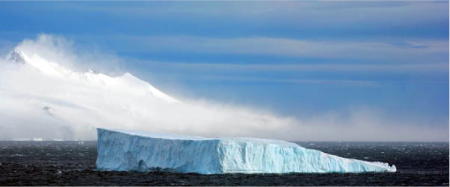| SEARCH |
-

Nov 17, 2015
Reflections on a three-decade legacy
The International Geosphere-Biosphere Programme (IGBP) will come to a close at t...
-
Nov 17, 2015
Use of and access to content on this website
Text and images produced by IGBP in house are free to use with appropriate credi...
-
Nov 12, 2015
Bella Gaia performance and panel discussion to mark IGBP's closure
A musical performance by Bella Gaia will celebrate the achievements and legacy o...
-

Towards Future Earth:
evolution or revolution?
During its three decades of existence, the International Geosphere-Biosphere Pro...
-
A personal note on IGBP and the social sciences
Humans are an integral component of the Earth system as conceptualised by IGBP. João Morais recalls key milestones in IGBP’s engagement with the social sciences and offers some words of advice for Future Earth.
-
IGBP and Earth observation:
a co-evolution
The iconic images of Earth beamed back by the earliest spacecraft helped to galvanise interest in our planet’s environment. The subsequent evolution and development of satellites for Earth observation has been intricately linked with that of IGBP and other global-change research programmes, write Jack Kaye and Cat Downy .
-
Deltas at risk
Around 500 million people worldwide live on deltas, but many of the world's deltas are sinking due ...
-
Climate change: the state of the science
A new data visualization released on the first day of the plenary negotiations at the UNFCCC’s clima...
-
Climate Change:
the State of the Science
Videos now online from the Stockholm public forum to mark the launch of the IPCC's climate report, 2...
The challenge of adapting marine social-ecological systems to the additional stress of climate change
Perry R I, Ommer R E, Barange M and Werner F
Vol 2; Issue 5-6: pp. 356–363

A broad marine policy goal is to maintain healthy marine social–ecological systems that sustain desirable ecosystem services and support human livelihoods. Marine social–ecological systems are already stressed by a number of environmental factors and the impacts of globalisation. Climate change is an additional stress that may push marine social–ecological systems beyond the ranges of past variability to which they have become adapted. Human social systems have well-developed strategies for dealing with variability within their normal ranges of experience, although these capacities are not distributed homogeneously around the globe. This paper addresses the additional impacts of climate change on marine social–ecological systems that are focussed around fishing. For example, human social fishing systems dealing with high variability upwelling systems with rapidly reproducing fish species may have greater capacities to adjust to the additional stress of climate change than human social fishing systems focussed on longer-lived and generally less variable species. The details of local impacts of climate change and its interactions with existing stresses on marine social–ecological systems are difficult to predict but will lead to more extreme events and increased uncertainty. Management must strive to enhance the adaptive capacities of these systems to uncertainty and change. Primary challenges are to address non-climate change stresses such as overfishing and how they may interact with climate change to produce surprises, and to recognise that multiple interacting time, space and organisational scales make identification and resolution of impacts difficult. Additional challenges are to develop integrated observing and modelling systems for the full social–ecological system so as to quickly recognise changes, to enhance communications with stakeholders, and to develop flexible institutions that can adjust rapidly to new circumstances.

IGBP closed at the end of 2015. This website is no longer updated.
-

Global Change Magazine No. 84
This final issue of the magazine takes stock of IGBP’s scientific and institutional accomplishments as well as its contributions to policy and capacity building. It features interviews of several past...
-

Global Change Magazine No. 83
This issue features a special section on carbon. You can read about peak greenhouse-gas emissions in China, the mitigation of black carbon emissions and the effect of the 2010-2011 La Niña event on gl...
-
INTERGOVERNMENTAL PANEL ON CLIMATE CHANGE:
How green is my future?
UN panel foresees big growth in renewable energy, but policies will dictate just how big.
-
UK:
'The Anthropocene: a new epoch of geological time?'
Royal Society, Philosphical Transactions A


















